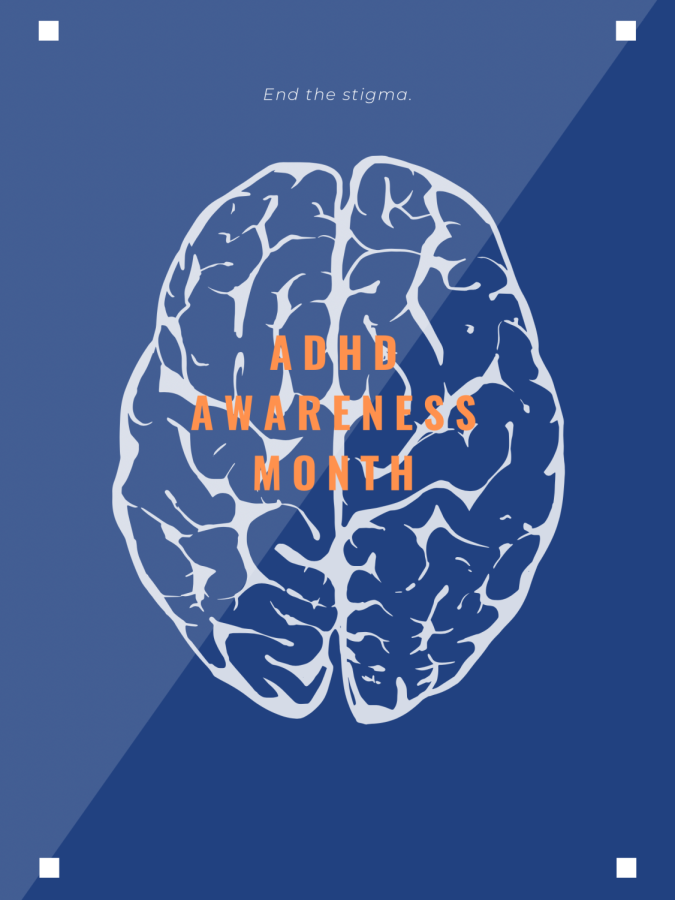October is ADHD Awareness Month
October 21, 2022
October is ADHD (Attention Deficit Hyperactivity Disorder) Awareness month. This is a time for those who have felt the struggles of ADHD to share their stories and help others who are still struggling to know there is light at the end of the tunnel. Over the years, there have been many misconceptions about ADHD, so another goal of this month is to debunk these stereotypes to help tell the truth behind what this diagnosis is truly like.
One of the most common misconceptions among people with ADHD is that their disability is not real despite almost all medical and health organizations in the U.S. validating the authenticity behind ADHD. According to the CDC, “ADHD is one of the most common neurodevelopmental disorders of childhood,” but because we can’t see the disease the same way you can see someone who is in a cast for a broken arm, people tend to think, “If I can’t see it then it must not be real.” This is the type of mindset that is causing people who do have ADHD to not want to get help. With this type of misconception, many parents are also reluctant to get their children help.
Many people unfortunately believe that if a child has ADHD then it’s ultimately the parents’ fault in how they raised their children when in fact this is far from the truth. ADHD comes from the genes you inherit from your parents. Although it definitely helps if the parents of those with ADHD are supportive and get their children the help they need, that does not cause the ADHD to disappear. So whether you are a good parent or not, the ADHD is still going to be there no matter what.
So many people worldwide suffer in silence due to fear and shame associated with ADHD. If you are someone who is in this position or is embarrassed by having ADHD, remember ADHD does have some benefits, it all depends on the perspective you choose to take.
ADHD is definitely not a walk in the park. Most of us have all had our fair share of letdowns but those letdowns have allowed those with ADHD to become more empathetic and resilient. The impulsivity that comes with ADHD leads to creativity. Those with ADHD have a harder time controlling their thoughts, but with this comes creative ideas that people without ADHD don’t get to experience. So instead of viewing ADHD as something always being negative, start looking into things that make people with ADHD the funny, outgoing person they are.
Resources:
https://www.adhdawarenessmonth.org/
https://www.cdc.gov/ncbddd/kids/adhd.html








